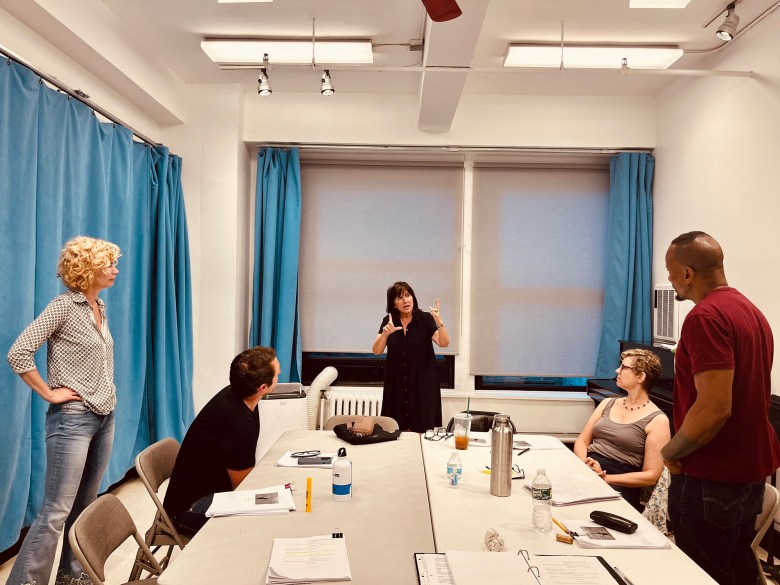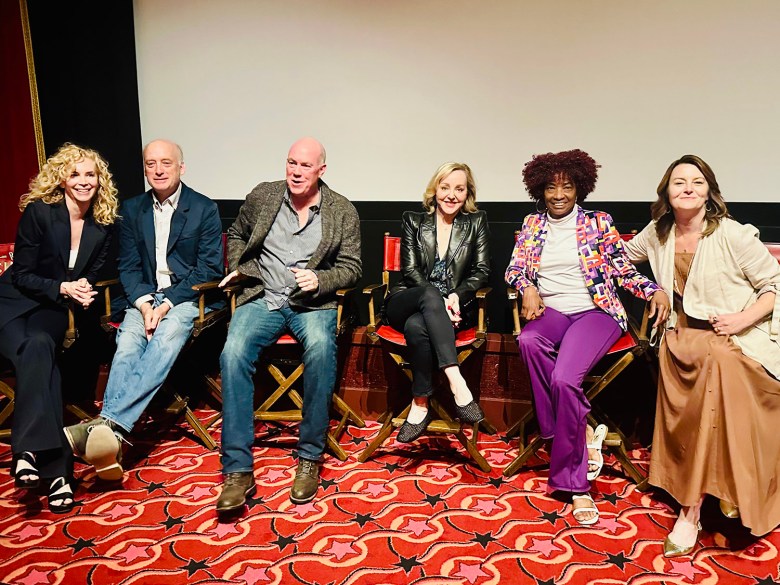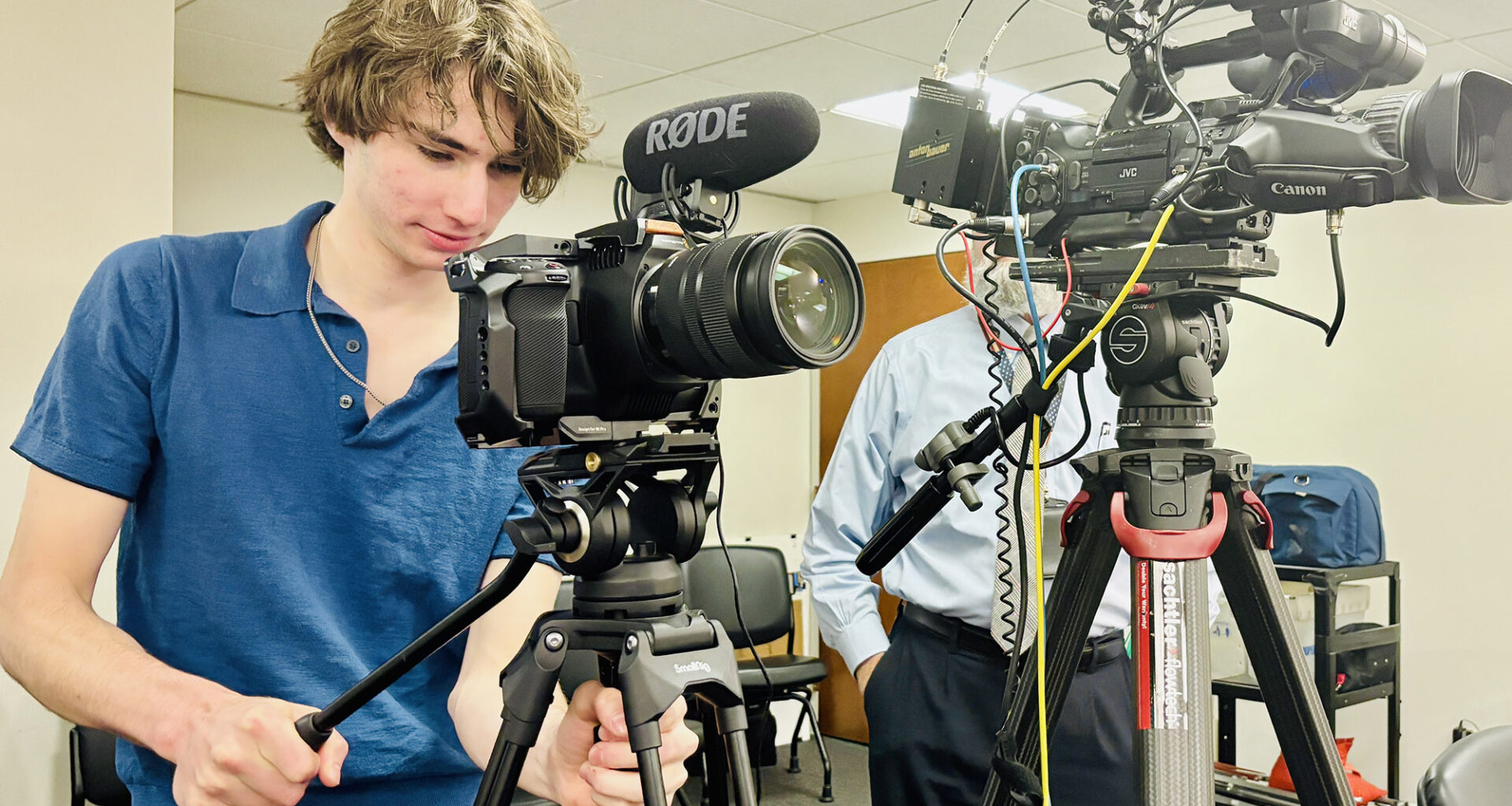When the construction began below their apartment in December 2006, Shannon Burkett didn’t think much of it. The old bank on the first floor of their Manhattan building was being renovated. She assumed it would be a few weeks of noise, then back to normal.
Then the dust came. It wasn’t just on the windowsills or gathering in corners. It coated everything—a chalky film across every toy, dish, carpet, and baby blanket. Burkett, an actress and new mother, wiped it off again and again, but it kept returning—thick, swirling in the air, in every breath, impossible to escape.
When her nine-month-old son, Cooper, went in for a routine checkup, his bloodwork came back showing dangerously high levels of lead. Soon, he stopped hitting developmental milestones. He no longer talked or ate. He grew agitated.
“I didn’t know where to begin,” Burkett says. “We had no idea what was happening to him, and no one wanted to take responsibility.”
The construction company denied wrongdoing. The landlord dismissed her concerns. City officials brushed her off, saying lead poisoning was a thing of the past. “I was constantly gaslit,” Burkett says. Her once-safe home turned into a toxic zone she was left to navigate alone, terrified, exhausted, and furious.
Then Cooper developed pica, the compulsive urge to eat non-edible materials—pages out of books, pieces of sheetrock from the walls, the wooden corners of his crib, strings ripped from bathmats. He sobbed from stomach pain and threw up yellow battery acid each morning.

Shannon Burkett with her kids in their Manhattan apartment. Her son Cooper contracted a series of illnesses and suffered developmental delays after being exposed to high levels of lead during a renovation of their building. Cooper developed pica, the compulsive urge to eat non-edible materials—like the wooden edges of his crib.
Burkett began leaving her shoes outside after runs over the Brooklyn Bridge, vacuuming in the middle of the night, scrubbing every surface with Cascade, dipping even books into the solution until they bulged and warped, until her hands cracked and bled from the chemicals. The fear was constant.
Finally, after contacting the Environmental Protection Agency, two inspectors—“angels,” as Burkett calls them—visited off the clock, putting their jobs in jeopardy, confirmed the presence of lead-contaminated dust from the bank renovations, and helped the family begin cleanup. “Those people saved us,” Burkett says.
What followed was years of struggle and discovery. The damage to Cooper’s body revealed itself over time: anemia, reactive asthma, stomach ulcers and pain, short-term memory loss, and ongoing developmental and processing issues. He underwent years of occupational therapy, speech and behavior counseling, and specialized education programs to help rebuild what lead stole. Though he has made remarkable progress, Burkett says, he continues to live with lasting neurological and physical effects that trace back to those first months of contamination.
Through it all, Burkett went back to school, earned a nursing degree, and began to understand what was happening inside her child’s body. From that knowledge and a resolve to ensure no other parent lives the same nightmare, came the audio docudrama series, “Lead: How This Story Ends is Up to Us.”
From Trauma to Art
Burkett recorded many of the Signal award-winning podcast’s scenes in that same apartment, her home of 20 years. She taught herself audio editing with guidance from her husband, Emmy-winning sound mixer Andy Kris, and coproduced the podcast with her longtime friend Jenny Maguire. It was largely self-funded through Burkett’s work as a NICU lactation nurse at Mount Sinai and New York Presbyterian, with supplemental donations supporting events. “We’re trying to find money,” Burkett says, “but it’s not stopping us. We’re thinking outside the box. We’re opening up those doors.”
Originally conceived as a play, the story evolved through workshops with Philipstown Depot Theater artistic director Alice Jankell. She helped refine the opening line, “If only I knew then what I know now,” and encouraged Burkett to embrace multiple voices. “Alice saw it: It’s the chaos, the atoms, like electrons bumping into each other, different compounds,” Burkett says.
 Philipstown Depot Theater artistic director Alice Jankell at a reading of the play version of “Lead.”
Philipstown Depot Theater artistic director Alice Jankell at a reading of the play version of “Lead.”
Maguire suggested reimagining the story as a podcast to reach a wider audience. When they discovered Tribeca Film Festival’s narrative audio section, the team shaped “Lead” to meet the festival’s requirements, editing and packaging the material in just a month.
The podcast features an Emmy and Tony-award winning ensemble starring Meritt Wever (“Severance”), Alessandro Nivola (The Brutalist), Cynthia Nixon (“Sex and The City”), Cooper Burkett, and director Alan Taylor (“Game of Thrones”).
When “Lead” premiered at Tribeca in June, it resonated far beyond the art world. The docudrama became a rallying cry for awareness, not just about one boy’s illness, but about an overlooked epidemic in New York State.
Invisible Epidemic
According to the New York State Department of Health, thousands of children in New York test positive for elevated lead levels each year, most often in neighborhoods with aging homes, flaking paint, lead pipes, or contaminated dust. Twenty-five communities of concern, including Poughkeepsie, Kingston, and Newburgh, have been identified for their high rates of pre-1978 housing—the year lead-based paint was banned. This November, the state’s new Lead Rental Registry will take effect in these communities, requiring landlords to remove lead hazards in older multiunit rentals.
Young children are especially vulnerable because they explore the world by touch, putting their hands or objects in their mouths that may be contaminated. New York State requires blood testing at ages one and two, with annual risk assessments from six months to age six. If a venous test shows levels above five micrograms per deciliter, local health departments conduct environmental investigations. Severe cases may require emergency screening for abdominal or blood effects.
“With strong pediatric networks in the Hudson Valley, we’re able to detect elevated levels before they manifest as clinical disease,” says Dr. Amy Brown, a pediatric pulmonologist and environmental health specialist. Universal screening, she says, is crucial for early detection. But exposure can begin even earlier. “Lead can cross the placenta before birth, so prenatal exposure is common in our region,” Dr. Brown says.
Even low levels of lead can damage the nervous system, impair brain development, learning, and cause behavioral, hearing and speech, and kidney problems. “The toxin easily crosses the blood-brain barrier,” Dr. Brown says, disrupting development during critical windows of childhood. “There’s no safe level of lead in the bloodstream. Any amount comes from an outside source.”
Prevention, she says, requires coordination among health departments, pediatricians, landlords, contractors, community organizations, parents, and policymakers. “We can’t go back in time and eliminate what can be devastating effects of lead poisoning,” Dr. Brown says. “But we can employ prevention at every public health level.”
Right to Know
For Burkett, those stakes are personal. Her son’s illness spurred her into advocacy, partnering with Clean and Healthy’s Lead Free Kids NY coalition—a network of over 60 organizations working to end childhood lead poisoning by 2040. Their current focus is on public education and aggregating support for the Lead Paint Right to Know Act.
The legislation, sponsored by Senator Neil Breslin and Assemblymember Jonathan Rivera, would require property owners to disclose the presence and location of lead hazards before selling or renting a home, giving families the right to know if their home is safe and preventing lead exposure.
“If that law was in place when the dust infiltrated our apartment, I would have known that the dust had lead in it and my son wouldn’t have gotten sick,” Burkett says. “To take away children’s potential because of preventable lead exposure, that’s cruelty. That’s why we fight until it’s done.”
Her advocacy extends beyond New York. She and Cooper were recently honored by UNICEF for their work in global lead poisoning prevention. “Going to the UN breakfast was a sense of pride for my kid,” Burkett says. “I have a tremendous amount of guilt from what happened to my son, and I can never undo it, but I can try to stop it from happening to other kids. Passing these laws and seeing this disease go away helps me find meaning in what happened.”
Listening Together
During National Lead Poisoning Prevention Week, October 19-25, the “Lead” team will take their message on the road. The six-city tour stretches from Buffalo to New York City, beginning October 19 at the Philipstown Depot Theater in Garrison, where participants will don headphones to immerse themselves in the soundscape of “Lead.” Each listening will be followed by a live conversation with the creators, medical professionals, scientists, elected officials, and families—a communal counterpoint to the silence that so often surrounds lead exposure.
 Shannon Burkett and the cast of “Lead.”
Shannon Burkett and the cast of “Lead.”
“People feel alone and unheard,” Burkett says. “They feel like they’re screaming into the void that their children are being poisoned, and nobody’s listening.” The tour, she explains, is about building connection, breaking down the silos between scientists, medical professionals, advocates, and artists. It mirrors Burkett’s own journey: uniting the compartments of her life as an advocate, nurse, researcher, and actress through storytelling. “It’s incredible to come full circle on my own sense of isolation,” she says. “There’s a community of people trying to make this world safer.”
That sense of gathering lies at the heart of the tour. “Theater doesn’t proselytize or lecture. It gathers us to dig deep into universal human experiences,” the Depot Theater’s Jankell says. “Through human behavior and relationships, we find awareness, empathy, and conversation. This is about giving voice to the voiceless.”
At the Depot, the podcast will become what Jankell calls “a movie in your ears,” a new form of theatrical storytelling that turned listening into a collective act. “You’re breathing together, gasping together, sharing laughter,” she says. “It’s a circular energy that only happens in a theatrical gathering—movies, theater, podcasts, anywhere that we dine out on a story together.”
These gatherings, Jankell believes, can ignite change. “You might not know this subject matter affects you,” she says. “But you’ll be moved. Your world will crack open. You’ll understand your neighbors better, or become a better voter, or more curious person.”
“It’s a fundamental question I’m asking,” Burkett says. “Do we have the right to clean water, air, and a safe place to live? I think it’s an inalienable right—life, liberty, and the pursuit of happiness—and lead is taking that away.”
As the lights go down and the headphones click on, Cooper’s voice rises through. “How this story ends,” he says, “is up to us.”
Related
The River is an independent news outlet that produces in-depth, quality journalism and analysis about the Hudson Valley and Catskills regions. Learn more about our mission and ethics.

